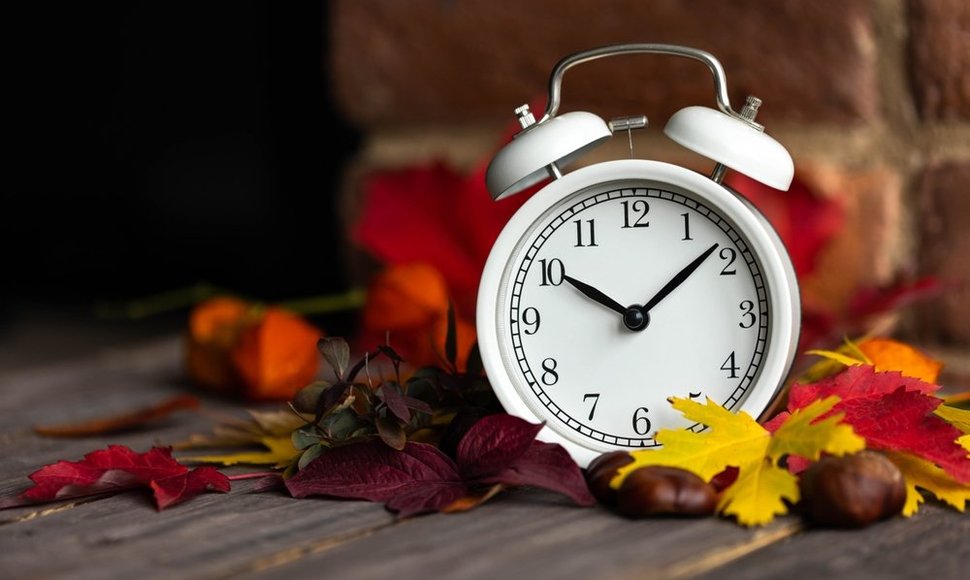 Source: www.karpol.lt
Source: www.karpol.lt
On the last Saturday in October (27 October) we will turn our clocks back one hour. Although it is said that turning the time back is easier for people in autumn than turning it forward in spring, still people experience side effects such as disturbed sleep, fatigue and irritability for up to a week and, if you are more sensitive, for as long as three weeks. Assoc. Prof. Vaida Taminskienė from the Department of Public Health at the Faculty of Medicine, notes that the most important thing to do after the time change is to maintain a good sleep and daily routine. Read the interview to find out how clock resetting affects the human body.
More noticeable effects in autumn
“Resetting clocks can disrupt our internal circadian rhythms, affecting the duration and quality of our sleep, which in turn may have negative effects on both our physical and mental health. This is more noticeable in spring, when by resetting the clock, we lose one hour of sleep,” Prof. Taminskienė said. There are a number of studies which show that a few days after the clock is reset, the rate of cardiovascular disease, strokes and heart attacks, injuries, accidents (including car accidents) and even suicides, increases.
“It can also lead to poorer cognitive function, academic performance, work performance, and higher rates of depressive episodes. The negative impact on health is evident both in population surveys and in studies that monitor hospital admissions, mortality rates or the cause of death figures,” the researcher said.
Across the population, more negative health effects are observed in spring, when we move to the daylight saving time by turning clocks forward, and thereby losing an hour of sleep. In autumn, most people adjust to the new time more easily.
“However, we are all different, so even turning the clock back can disturb our individual circadian rhythms, disrupt sleep patterns and cause unpleasant health and well-being consequences. With the introduction of wintertime, it gets dark earlier, and we naturally spend less active time outdoors after work. This can also have negative effects on our health,” the professor explained.
There are also advantages
An extra hour of sleep can have a positive effect on health, something that studies have shown, manifests a few days after the time change in autumn.
According to Prof. Taminskienė, the introduction of wintertime means that we get more morning sunlight and less towards the end of the day. Theoretically, this is definitely better for our circadian rhythm and sleep hygiene: it should be easier to fall asleep in the evening and to get up in the morning, and therefore the quality of our sleep should be better. Most sleep experts therefore advocate for the wintertime clock setting.
“In today’s world, however, we don’t live by the presence of daylight, but by the clock. Many people start and finish their work in the dark during the winter season, so they many not even notice any strong positive effects, on the contrary, the clock resetting can unbalance their internal clock and routine,” the professor continued.
A matter for debate
According to the researcher, the most important thing to do after the time change is to follow a good sleep routine – sleep in a well-ventilated, cooler room, avoid screens a few hours before going to bed, and abstain from food that is difficult to digest and caffeinated beverages. “If you find that sleeping longer in the morning makes it harder for you to fall asleep, you could go to bed later on the Saturday before the clock resetting to help you fall asleep at your usual time on Sunday night. If you find it difficult to get up in the morning and feel sleepy, try to spend as much time as possible in the morning sun. It will help you to wake up and balance your circadian rhythms. Also, light exercise and sport can boost your energy in the morning,” the professor advised.
However, Prof. Taminskienė recommends stopping the clock resetting practice, as this has the biggest negative impact on health.
“The choice of the time is a matter for debate. Both summer and winter have their advantages and disadvantages. There are also some cultural and economic aspects to keep in mind, such as the time most people start their school and work, the time in neighbouring countries that we work with or travel to. All this should be considered before making a final decision,” Prof. Taminskienė concluded.
Source: LRT.LT
